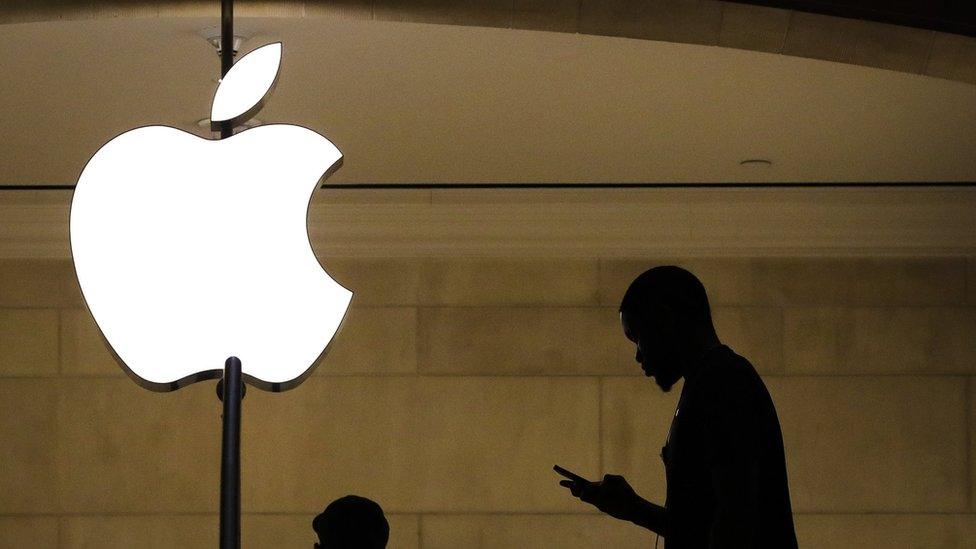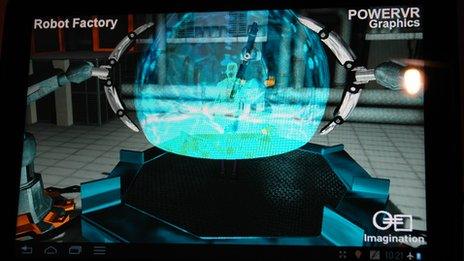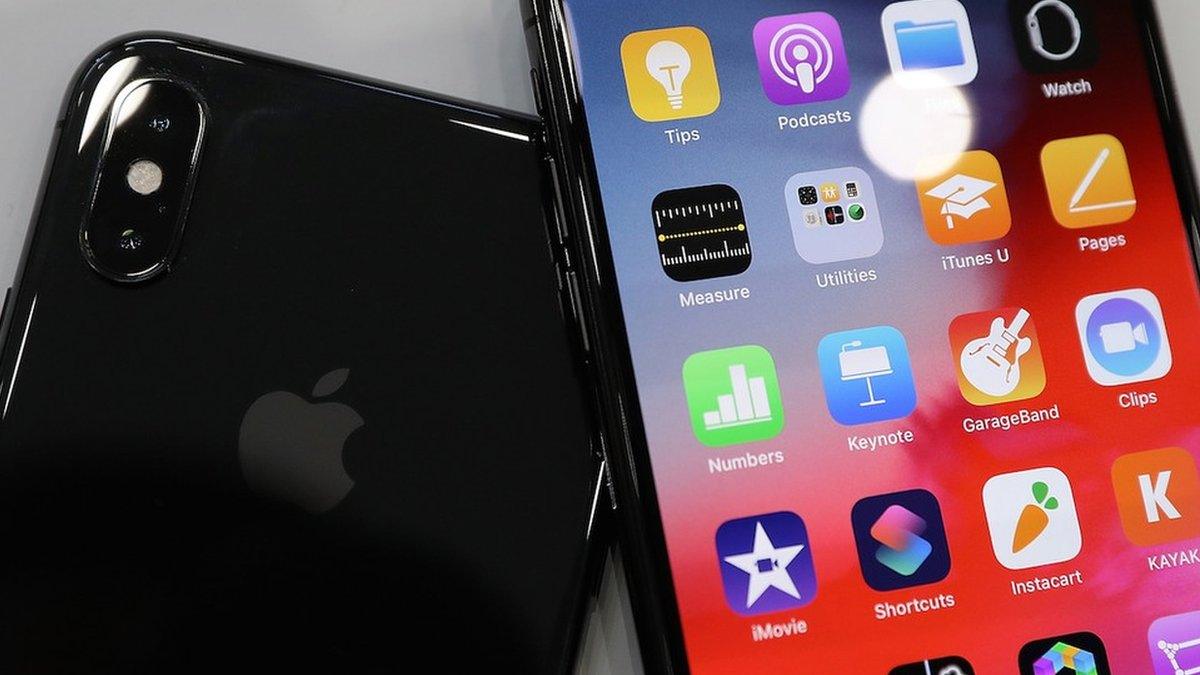Imagination announces new Apple licence deal
- Published

Apple has revived a licensing relationship with UK-based chipmaker Imagination Technologies.
Imagination said, external it will allow Apple to access "a wider range of Imagination's intellectual property" in exchange for fees under a new, "multi-year" deal.
It comes about three years after the iPhone maker's decision to break ties disrupted Imagination's business.
Shares plunged and the firm was eventually sold to a Chinese-backed investment firm.
In a statement, Imagination said the new deal would replace the "multi-year, multi-use licence agreement" that the two companies announced back in 2014. Terms were not disclosed.
Founded in 1985, Imagination had been hailed as one of a handful of successful home-grown technology companies.
But its survival was in question in 2017, after Apple said it would end the use of Imagination's graphics processing units (GPUs) in favour of developing the equipment in-house. At the time, the US giant accounted for about half of Imagination's revenues.
Months later, Canyon Bridge, a Chinese-backed private equity investment firm, bought Imagination for £550m, a fraction of the company's former value.
Last month, Imagination announced its latest graphics processing architecture, describing it as "the fastest GPU" ever released.


It was one of the jewels in the crown of the UK technology scene - but the history of Imagination Technologies is a cautionary tale for any business about the dangers of having all your eggs in one basket.
Being a supplier to Apple was the route to riches in the good times. At its peak in 2012, Imagination was valued at more than £2bn. But when the US tech giant went cool on the relationship, everything began to fall apart.
Apple had already started poaching key staff and then a warning in 2017 that it was going to phase out its use of the UK firm's technology sent the shares tumbling. Soon after, it was sold to the Chinese-linked private equity fund Canyon Bridge for little more than a quarter of that 2012 valuation.
Parts of the business have been sold, the workforce has been halved to 850, and Imagination now has a broader range of customers. And now it has settled its differences with Apple, amid speculation that the Californian giant preferred a deal to a court battle over the patented Imagination technology that may still be present in the iPhone and other products.
But with the much bigger chip designer ARM in the hands of Japan's Softbank since 2016, and Autonomy sold to HP in a disastrous deal in 2011, the last decade has not been a cheerful period for anyone hoping to see a UK-owned tech business take on the world.

- Published16 May 2012

- Published31 December 2019
